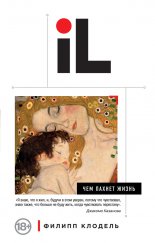»стори€ ƒревнего мира. ќт истоков ÷ивилизации до падени€ –има Ѕауэр —ьюзен

Л428Ы Constance A. Cook, ЂWealth and the Western Zhouї, Bulletin of the School of Oriental and African Studies, University of London 60:2 (1997), pp.†254Ц275.
Л429Ы ChТien, p.†63.
Л430Ы Ibid., p.†62.
Л431Ы Li Xueqin, Eastern Zhou and Qin Civilizations (1985), p.†16.
Л432Ы Sarah Allan, ЂDrought, Human Sacrifice and the Mandate of Heaven in a Lost Text from the СShang ShuТї, Bulletin of the School of Oriental and African Studies, University of London 47:3 (1984), p.†533.
Л433Ы Edward L. Shaughnessy, ЂWestern Zhou Historyї, in The Cambridge History of Ancient China: From the Origins of Civilization to 221BC, ed. Michael Loewe and Edward L. Shaughnessy (1999), p.†311; а также: Xueqin, p.†16.
Л434Ы ќб этом рассказано в ЂЎань-шуї; см. Shaughnessy, ЂWestern Zhou Historyї, p.†314.
Л435Ы ÷ит. no: Shaughnessy, ЂWestern Zhou Historyї, p.†322.
Л436Ы Ibid.
Л437Ы ChТien, p.†66.
Л438Ы —легка перефразировано из: ChТien, p.†68.
Л439Ы Ibid.
Л440Ы Kulke and Rothermund, p.†36.
Л441Ы Keay, p.†40.
Л442Ы Wolpert, p.†37.
Л443Ы Keay, pp.†3Ц4.
Л444Ы Chakravarthi V. Narasimhan, trans., The Mahabharata: An English Version Based on Selected Verses (1998), pp.†14Ц15.
Л445Ы Wolpert, p.†30.
Л446Ы Narasimhan, p.†34.
Л447Ы Kulke and Rothermund, p.†44.
Л448Ы Keay, p.†43.
Л449Ы Narasimhan, p.†44.
Л450Ы Ibid., p.†47.
Л451Ы Wolpert, p.†30.
Л452Ы Keay, p.†41.
Л453Ы Wolpert, p.†36.
Л454Ы Josh. 1:4, New International Version (hereafter NIV).
Л455Ы Pellegrino, p.†256.
Л456Ы Josh. 13:2Ц4, NIV.
Л457Ы Judg. 15:11, NIV
Л458Ы Judg. 16:30, NIV.
Л459Ы 1 Sam. 8:11Ц18, NIV.
Л460Ы 1 Sam. 13:19Ц21, NIV.
Л461Ы 1 Sam. 17:51Ц52, NIV.
Л462Ы Dimitri Baramki, Phoenicia and the Phoenicians (1961), p.†25.
Л463Ы 1 Kings 4:22Ц26, NIV.
Л464Ы E. W. Heaton, SolomonТs New Men: The Emergence of Ancient Israel as a National State (1974), p.†34.
Л465Ы 1 Kings 10:1Ц2,13, NIV.
Л466Ы Robert G. Hoyland, Arabia and the Arabs: From the Bronze Age to the Coming of Islam (2001), p.†13.
Л467Ы Ibid., p.†38.
Л468Ы 1 Kings 9:11, NIV.
Л469Ы Homer, The Iliad, Book 9, 460Ц469, translated by Samuel Butler (1898).
Л470Ы Clayton, p.†184.
Л471Ы 1 Kings 14:25Ц27, NIV.
Л472Ы Shaughnessy, ЂWestern Zhou Historyї, p.†324.
Л473Ы Constance A. Cook, ЂWealth and the Western Zhouї, p.†283.
Л474Ы Shaughnessy, ЂWestern Zhou Historyї, p.†326.
Л475Ы ChТien, p.†70.
Л476Ы Fairbank and Goldman, p.†18.
Л477Ы Shaugnessy, ЂWestern Zhou Historyї, p.†329.
Л478Ы ChТien, p.†71.
Л479Ы The Greater Odes 3.7, Ezra Pound, in trans., The Confucian Odes: The Classic Anthology Defined by Confucius (1954), p.†180
Л480Ы Constance A. Cook, ЂWealth and the Western Zhouї, p.†288.
Л481Ы ChТien, p.†71.
Л482Ы Ibid., p.†72.
Л483Ы Edward L. Shaughnessy, ЂHistorical Perspectives on the Introduction of the Chariot into Chinaї, Harvard Journal of Asiatic Studies 48:1 (1988), p.†223.
Л484Ы Edward Kaplan, An Introduction to East Asian Civilizations: The Political History of China, Japan, Korea and Mongolia from an Economic and Social History Perspective (1997), sec. 12.3.
Л485Ы Shaughnessy, ЂWestern Zhou Historyї, p.†347.
Л486Ы ChТien, p.†73.
Л487Ы Ibid., p.†74.
Л488Ы Chi, p.†48.
Л489Ы Ibid., pp.†48Ц49.
Л490Ы Quoted in Cotterell, China, p.†39.
Л491Ы Chi, p.†49.
Л492Ы 2 Sam. 8:5Ц6, NIV.
Л493Ы Saggs, Assyria, p.†70.
Л494Ы Joan Oates, Babylon (1979), p.†106.
Л495Ы Saggs, Assyria, p.†72.
Л496Ы Luckenbill, Ancient Records, vol.†1, pp.†158, 171.
Л497Ы Laessoe, p.†102.
Л498Ы Ibid., p.†104.
Л499Ы Luckenbill, Ancient Records, vol. l,pp. 164Ц166.
Л500Ы 1 Kings 16:21Ц25, NIV.
Л501Ы John Rogerson, Chronicle of the Old Testament Kings (1999), p.†102.
Л502Ы A.T. Olmstead, History of Assyria (1923), p.†87Ц88.
Л503Ы Luckenbill, Ancient Records, vol.†1, p.†147.
Л504Ы Ibid., p.†201.
Л505Ы Charles F. Pfeiffer, Old Testament History (1973), p.†314.
Л506Ы Olmstead, History of Assyria, p.†136.
Л507Ы 1 Kings 22:7 ff., NIV.
Л508Ы 2 Kings 10:32, NIV.
Л509Ы Michael C. Astour, Ђ841 B.C.: The First Assyrian Invasion of Israelї, Journal of the American Oriental Society 91:3 (1971), p.†386.
Л510Ы Pfeiffer, p.†318.
Л511Ы Luckenbill, Ancient Records, vol.†1, pp.†202Ц203, 264.
Л512Ы Oates, pp.†109Ц110.
Л513Ы Alan R. Millard, ЂChaldeansї, entry in Dictionary of the Ancient Near East, ed. Piotr Bienkowski and Alan Millard (2000), p.†70.
Л514Ы Brinkman, ЂForeign Relations of Babyloniaї, p.†279.
Л515Ы Olmstead, History of Assyria, p.†144.
Л516Ы Saggs, Assyria, p.†77.
Л517Ы Luckenbill, Ancient Records, vol.†1, p.†254.
Л518Ы Olmstead, History of Assyria, p.†156.
Л519Ы R. W. Rogers, A History of Babylonia and Assyria, vol.†2 (1971), p.†95.
Л520Ы Luckenbill, Ancient Records, vol.†1, p.†259.
Л521Ы J. A. Brinkman, A Political History of Post-Kassite Babylon, 1158Ц722 BC (1968), pp.†169Ц170.
Л522Ы Brinkman, ЂForeign Relations of Babyloniaї, p.†279.
Л523Ы Saggs, Assyria, p.†79.
Л524Ы Terry Buckley, Aspects of Greek History, 750Ц323 BC: A Source-Based Approach (1996), p.†35.
Л525Ы Donald Larimer, ЂThe Iliad: An Unpredictable Classicї, in Robert Fowler, ed., The Cambridge Companion to Homer (2004), p.†18.
Л526Ы Ken Dowden, ЂThe Epic Tradition in Greeceї, in Fowler, p.†190.
Л527Ы Robin Osborne, ЂHomerТs Societyї, in Fowler, p.†206.
Л528Ы Ibid., p.†218.
Л529Ы Robert Fowler, ЂIntroductionї, in Fowler, p.†5.
Л530Ы Sarah B. Pomeroy et al., Ancient Greece: A Political, Social, and Cultural History (1999), p.†79.
Л531Ы Homer, The Iliad, Book 2, translated by Alexander Pope (1713).
Л532Ы T. J. Cornell, The Beginnings of Rome: Italy and Rome from the Bronze Age to the Punic Wars (c. 1000Ц264 BC) (1995), pp.†31Ц33.
Л533Ы David Ridgway, Italy Before the Romans: The Iron Age (1979), pp.†24Ц25.
Л534Ы Cornell, pp.†35Ц36.
Л535Ы H. H. Scullard, A History of the Roman World, 753 to 146 BC (2003), p.†39.
Л536Ы Buckley, p.†36.
Л537Ы Judith Swaddling, The Ancient Olympic Games (1999), pp.†10Ц11.
Л538Ы Livy, 1.4, from The Early History of Rome, Books IЦV of The History of Rome from Its Foundation, translated by Aubrey de Selincourt (1971), pp.†37Ц38.
Л539Ы Plutarch, Romulus, in Plutarch's lives, vol.†1: The Dryden Translation, p.†27.
Л540Ы Livy 1.6, Early History of Rome, p.†39.
Л541Ы Ibid., p.†40.
Л542Ы Livy, 1.1, Early History of Rome, p.†33.
Л543Ы R. M. Ogilvie, ЂIntroduction: Livyї, in Livy, Early History of Rome, p.†17.
Л544Ы Livy, 1.7Ц9, Early History of Rome, pp.†42Ц43.
Л545Ы Livy, 1.9, Early History of Rome, p.†43.
Л546Ы Livy, 1.13Ц14, Early History of Rome, pp.†48Ц49.
Л547Ы Buckley, p.†39.
Л548Ы Hesiod, Works and Days, 11. 37Ц40, in Theogony, Works and Days, Shield (2004), p.†66.
Л549Ы Ibid., 11. 220Ц221, p.†70.
Л550Ы Ibid., 11.230Ц235, p.†71.
Л551Ы Saggs, Assyria, p.†81.
Л552Ы 2 Kings 14:25Ц28.
Л553Ы Luckenbill, Ancient Records, vol.†1, p.†114.
Л554Ы Saggs, Assyria, p.†80.
Л555Ы Ibid., p.†83.
Л556Ы Ibid.
Л557Ы Olmstead, History of Assyria, p.†124.
Л558Ы Oates, p.†112.
Л559Ы Hayim Tadmor, The Inscriptions of Tiglath-Pileserlll, King of Assyria (1994), p.†45.
Л560Ы Ibid.
Л561Ы Oates, p.†114.
Л562Ы Saggs, Assyria, p.†88.
Л563Ы Luckenbill, Ancient Records, vol.†1, p.†273.
Л564Ы Ernest A. Fredricksmeyer, ЂAlexander, Midas, and the Oracle at Gordiumї, Classical Philology 56:3(1961), p.†160.
Л565Ы Herodotus, 1.14.
Л566Ы 2 Kings 15Ц16.
Л567Ы –еконструкци€ по фрагментарному переводу, предложенному в: Oates, p.†114, а также Brevard S. Childs в Isaiah and the Assyrian Crisis (1967), p.†81.
Л568Ы Olmstead, History of Assyria, p.†179.
Л569Ы Luckenbill, Ancient Records, vol.†1, p.†285.
Л570Ы Daniel David Luckenbill, ЂThe First Inscription of Shalmaneser Vї, American Journal of Semitic Languages and Literatures 41:3 (1925), p.†164.
Л571Ы Luckenbill, Ancient Records, vol.†1, p.†283.
Л572Ы Josephus, Antiquities of the Jews, 9.14, in The Works ofJosephus (1987), pp.†264Ц265.
Л573Ы 2 Kings 17:4, NIV.
Л574Ы Clayton, p.†189; Jan Assmann, The Mind of Egypt. History and Meaning in the Time of the Pharaohs (2002), p.†312.
Л575Ы Assmann, pp.†317Ц319.
Л576Ы Quoted in Assmann, p.†320.
Л577Ы Saggs, Assyria, p.†92.
Л578Ы Daniel David Luckenbill, Ancient Records of Assyria and Babylon, Volume II: Historical Records of Assyria from Sargon to the End (1927), p.†71.
Л579Ы Ibid., p.†2; 2 Kings 17:6.
Л580Ы Luckenbill, Ancient Records, vol.†2, p.†2.
Л581Ы Ibid., p.†3.
Л582Ы A. Leo Oppenheim, ЂThe City of Assur in 714 B.C.ї, Journal of Near Eastern Studies 19:2 (1960), pp.†142, 147.
Л583Ы Paul Zimansky, ЂUrartian Geography and SargonТs Eighth Campaignї, Journal of Near Eastern Studies 49:1 (1990), p.†2.
Л584Ы Translated in Saggs, Assyria, p.†93.
Л585Ы Ibid., p.†94.
Л586Ы Oppenheim, ЂThe City of Assur in 714 B.C.ї, p.†134.
Л587Ы Luckenbill, Ancient Records, vol.†2, p.†10.
Л588Ы Zimansky, p.†3.
Л589Ы Laessoe, p.†113; Hoyland, p.†19.
Л590Ы J. A. Brinkman, ЂElamite Military Aid to Merodach-Baladanї, Journal of Near Eastern Studies 24:3 (1965), pp.†161Ц162.
Л591Ы Oates, p.†116.
Л592Ы —жатый пересказ из анналов —аргона в переводе из: Brinkman, ЂElamite Military Aidї, p.†163.
Л593Ы Luckenbill, Ancient Records, vol.†2, p.†15.
Л594Ы Oates, p.†116.
Л595Ы Isa. 14:29, NIV.
Л596Ы Daniel David Luckenbill, The Annals of Sennacherib (1924), p.†9.
Л597Ы Ibid., p.†10.
Л598Ы Grant Frame, Rulers of Babylonia from the Second Dynasty oflsin to the End of Assyrian Domination (1157Ц612 BC) (1995), p.†137.
Л599Ы Luckenbill, Annals, pp.†10Ц11.
Л600Ы Assmann, p.†335.
Л601Ы This quote and following from 2 Kings 20:12 ff., NIV.
Л602Ы This quote and following from 2 Kings 18:1 ff., NIV.
Л603Ы Luckenbill, Annals, p.†10.
Л604Ы —жатый и несколько модифицированный вариант текста из: Luckenbill, Annals, p.†10.
Л605Ы Herodotus, 2.14.
Л606Ы The Nebi Yunus Inscription (H4), translated in Luckenbill, Annals, p.†85.
Л607Ы Luckenbill, Annals, p.†15.
Л608Ы Ibid., p.†16.
Л609Ы Ibid., p.†17.
Л610Ы Emil G. Kraeling, ЂThe Death of Sennacheribї, Journal of the American Oriental Society 53:4 (1933), p.†338.
Л611Ы Xueqin, p.†16.
Л612Ы ChТien, p.†74.
Л613Ы Fairbank and Goldman, p.†49.
Л614Ы Xueqin, p.†37.
Л615Ы ChТien, p.†75.
Л616Ы G. W. Ally Rickett, trans., Guanzi, vol.†1 (1985), p.†5.
Л617Ы Ibid., p.†6.
Л618Ы ChТien, p.†75.
Л619Ы Ibid.
Л620Ы Tso chuan, quoted by Nicola Di Cosmo in Ancient China and Its Enemies: The Rise of Nomadic Power in East Asian History (2002), pp.†98Ц99.
Л621Ы ChТien, p.†76.
Л622Ы Ibid., p.†77.
Л623Ы Isa. 37:38, NIV.
Л624Ы јдаптаци€ перевода –. „. “омпсона, приведенного в: Kraeling, pp.†338Ц340.
Л625Ы Olmstead, History of Assyria, p.†343.
Л626Ы Frame, p.†164.
Л627Ы Olmstead, History of Assyria, p.†351.






